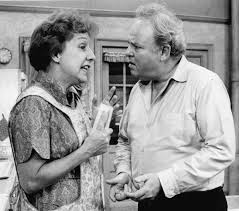Last week I found myself in a situation where I was talking with someone and I could hear my own voice. I sounded condescending and intense, with a tinge of anger. It was not how I wanted to convey my message and I felt helpless. At that time, I shared with this person that I could hear my own voice and my intention was not to be condescending, and for some reason I really couldn’t change the sound of my voice. I kept good eye contact to stay connected.
I was trying to understand what the person was doing and was in shock. It took me a couple of days of self-reflection to understand what was happening for me. What I realized was I was shocked by this person’s behavior. I could see the lack of basic skills. Later, I understood that my reaction was shock and also fear. I could not even imagine how someone that age would be unable to do simple tasks. Seeing the person lacking basic skills scared me because I felt responsible to help and I was overwhelmed by the scope of this.
The self-reflection helped me see my own over-functioning behavior and how I can choose to teach and help or choose not to do this. Once I looked at what was underneath my seemingly uncontrollable over-reaction, I called the person and apologized. I was calm and connected and it felt much better. Then I began to look at ways that I could empower the person and not rescue or shame.
The point of this story is that self-reflection is really important and many people don’t have the ability or desire to do this. Very few people take the time to self-reflect and look at how they behave. Because of that, very few people take the time to make amends. Making amends is different than just saying you’re sorry. Too often people say I’m sorry all day long and it has nothing to do with what they do, but is an automatic response because of low self-esteem.
Amends making comes from thinking over a situation and looking at, not only what you did, but also identifying your pattern of reacting. It is about understanding what triggered you so you can do better in the future. The other part of amends making is you don’t only say you are sorry, but you do something to make it better.
I called the person and said I am working on being more respectful and I will do better. In the next couple weeks I’ll do something special for this person to complete my amends making.
We all deserve to be treated with respect. We start by being self-reflective and then make amends. This builds your character. You also model healthy behavior for others.
God grant me the serenity
to accept the things I cannot change;
courage to change the things I can;
and wisdom to know the difference.


I find when I haven’t had enough sleep and when my liver is activated, I can be very condescending and quick with others. Being able to step back and objectively look at ourselves in situations like this, is a great talent to develop.
It sounds like your self-reflection was very insightful for you, Candess and that next time you find yourself being condescending to someone, we can stop yourself and maybe even explain that to the person, so that you can resolve the situation in the moment, vs. having to return to the unfinished business to make amends. Self-reflection is always a good practice, as through it we learn more about ourselves and how we want to be, or don’t want to be, in the world.
Thanks for validating self-awareness Beverley. Of course it is almost always with family where the reaction shows up. Ugh! Amends clears it all and hopefully helps to stop the behavior.
I had a hard time following your story, but I certainly can understand the underlying feelings. Part of what I’m missing in your story is why you felt you were responsible for this person’s lack of basic skills, and why you reacted so strongly to that. If this person is a child, I get it — but if the person is an adult…well…they must bear some responsibility for their own skill levels. What an amazing thing to be able to hear your own voice as you speak and be so aware of how you sound! But that doesn’t surprise me, given the kind of person you are.
Jackie I get it. I had a hard time writing it without giving too much information about the situation, but yes, the person was not yet an adult and the abilities were way below average. I think I reacted to seeing neglect where I didn’t expect it. Nevertheless, I need to behave in my reactions and in the future I hope to be helpful. Appreciate your honesty.
Thank you for sharing this process with us, Candess. It is so very helpful to see another person walking this path of greater self-awareness and, thus, greater compassion for the self and for the other. It is indeed rare to find and I am guessing that for the other person it will be not only instructive in terms of the information you were trying to convey, but also in terms of the way of interacting. Beautiful.
Thanks Reba. If we would all take some time to check ourselves rather than throwing poison arrows, I think we would be a lot happier.
Whatever we have learned through the years dictates our actions. It is a matter of being in retrospect, being aware and present and also having someone accountable in what we do or say that would help us check on ourselves. It is a choice what we want to do about what we have discovered. Making amends is also a personal responsibility that one can do.
WOW! I so resonated with your story. There are times when my husband says that I’m condescending to him and I don’t see it. I definitely don’t do this on purpose and don’t want to be disrespectful towards him either.
I think the only way to take notice is to go over what happened and be in the other person’s shoes to see if what you do or say is helpful or hurtful.
When I’m overwhelmed, overworked and under stress, I react to what’s happening around me, to me rather than breath through the situation and take the time to reflect.
I can also relate that making amends is so different than being sorry. It’s deeper and relationship building.
AHHH! Thanks for this. It’s time to reflect and do some self-awareness.
Thanks for understanding Claudette. I agree, it is often when we are stressed we can respond with a tone of voice or for me being too direct. Relationships are so important and take time!